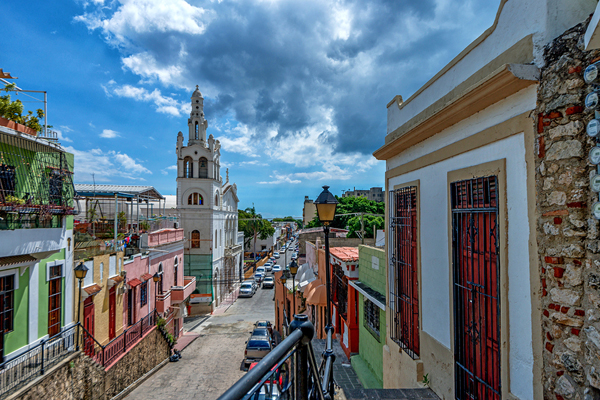Retire in Santo Domingo Guide
Summary: Retire in Santo Domingo with confidence, armed with the knowledge from our extensive guide. It covers critical considerations for retirees, from the cost of living and climate to housing, healthcare, and residency choices in Santo Domingo. We also delve into the social and cultural scene, volunteering options, public transportation facilities, and the city's walkability, helping you make an informed decision.

Retiring in Santo Domingo, Dominican Republic, is an increasingly popular choice for international retirees. The city offers a unique blend of modern amenities, rich history, and a vibrant culture. The cost of living is relatively low, the climate is tropical, and the healthcare system is robust. However, like any foreign country, there are challenges to consider, such as language barriers and cultural differences.
Cost of Living in Santo Domingo
The cost of living in Santo Domingo is one of its biggest draws for retirees. Housing, groceries, and utilities are significantly cheaper than in many Western countries. A comfortable lifestyle can be achieved on a modest pension or social security income. However, imported goods and luxury items can be expensive.
Climate
Santo Domingo boasts a tropical climate, with warm temperatures year-round. The city experiences a rainy season from May to November, but showers are usually brief and followed by sunshine. The constant warm weather allows for outdoor activities throughout the year.
Healthcare
The city has several modern hospitals and clinics, with many doctors speaking English. Private healthcare is affordable, and many retirees choose to purchase health insurance for added peace of mind. However, it's important to note that standards may vary from what you're used to in your home country.
Public Healthcare System
Foreign retirees can enroll in the Dominican Republic's public healthcare system, but many choose not to due to long wait times and lower standards of care compared to private facilities. Instead, many opt for private health insurance, which is still relatively affordable.
Residency Options
The Dominican Republic offers a special residency program for retirees, which includes tax incentives. The process is straightforward, but it's recommended to hire a local attorney to assist with the paperwork.
Recreational Activities
Santo Domingo offers a wealth of recreational activities, from exploring historic sites to enjoying the city's vibrant nightlife. The city is home to numerous parks, golf courses, and beaches. The Malecon, a seafront promenade, is a popular spot for walks and people-watching.
Restaurants
The city's culinary scene is diverse and affordable. Popular spots include Adrian Tropical for Dominican cuisine, and Buche Perico for seafood. For a more upscale dining experience, try La Dolcerie Restaurant.
Language Learning
While many Dominicans in Santo Domingo speak English, learning Spanish can enrich your retirement experience. The Instituto Cervantes offers Spanish classes for all levels.
Local Culture
Dominicans are known for their warm hospitality and love for music and dance. The city has a lively arts scene, with numerous galleries, theaters, and music venues. However, it's important to respect local customs and traditions.
Meeting People and Volunteering
Meeting new people can be as simple as joining a local club or volunteering. The Santo Domingo English Speakers Club is a great place to start. For volunteering, consider organizations like the DREAM Project or the Mariposa Foundation.
Housing
Most retirees choose to live in apartments or condos in the city center or in gated communities on the outskirts. Popular neighborhoods include Piantini, Naco, and Bella Vista.
Transportation
Public transportation in Santo Domingo is extensive and affordable, with buses, taxis, and the Metro. However, many retirees choose to own a car for convenience. The city is also very walkable, especially in the downtown area.
Retiring in Santo Domingo offers a unique blend of affordability, tropical climate, and cultural richness. However, it's important to do thorough research and visit the city before making the decision to retire there.
About the Author
 Joshua Wood, LPC joined Expat Exchange in 2000 and serves as one of its Co-Presidents. He is also one of the Founders of Digital Nomad Exchange. Prior to Expat Exchange, Joshua worked for NBC Cable (MSNBC and CNBC
Primetime). Joshua has a BA from Syracuse and a Master's in Clinical and Counseling Psychology from Fairleigh Dickinson University. Mr. Wood is also a licensed counselor and psychotherapist.
Joshua Wood, LPC joined Expat Exchange in 2000 and serves as one of its Co-Presidents. He is also one of the Founders of Digital Nomad Exchange. Prior to Expat Exchange, Joshua worked for NBC Cable (MSNBC and CNBC
Primetime). Joshua has a BA from Syracuse and a Master's in Clinical and Counseling Psychology from Fairleigh Dickinson University. Mr. Wood is also a licensed counselor and psychotherapist.
Some of Joshua's articles include Pros and Cons of Living in Portugal, 10 Best Places to Live in Ireland and Pros and Cons of Living in Uruguay. Connect with Joshua on LinkedIn.
Additional Information:
- Health Care in Santo Domingo
- Discover the Best of Santo Domingo
- Healthcare & Health Insurance in Dominican Rep
- Best Places to Live in Dominican Rep
- Real Estate in Dominican Rep
- Pros & Cons of Living in Dominican Rep
- Health Insurance for Expats in the Dominican Republic
- Pros and Cons of Living in Dominican Rep 2025
- 2025 Guide to Moving to Dominican Rep




